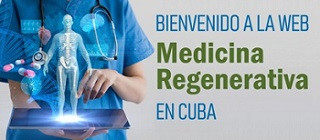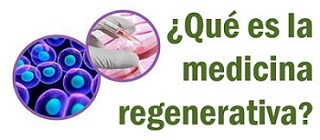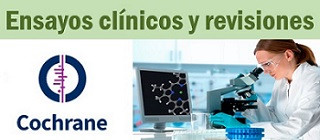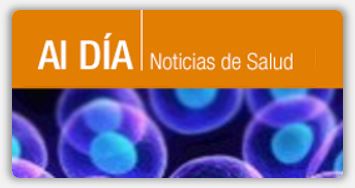TranTranslational and Clinical Research
Authors
• Chris Hyunchul Jo,
1.
• Young Gil Lee,
1.
• Won Hyoung Shin,
1.
• Hyang Kim,
1.
• Jee Won Chai,
1.
• Eui Cheol Jeong, Ver más…
THE EMBRYONIC STEM CELLS RESEARCH. EXAMPLE OF BIOTECHNOLOGY PROGRESS UNDER EXTRA-SCIENTIFIC PRESSURE
JOSÉ ANTONIO GÁMEZ ESCALONA
Universidad Monteávila
1060a Caracas
jgamez@uma.edu.ve
Fuente: Gámez Escalona, José A (2013).Cuadernos de Bioética XXIV /3a.
NATURE MEDICINE | EDITORIAL
doi:10.1038/nm.3658
Regenerative medicine may enable replacement of damaged or diseased tissues. But its clinical success will require deeper understanding of the basic biology of the stem cell niche and coordination between stem cell biologists and those in other fields.
It’s been more than 15 years since the term ‘regenerative medicine’ entered our scientific lexicon. Yet at the recent International Society for Stem Cell Research meeting in Vancouver in June, it became evident that we still do not fully understand the barriers to translation of regenerative medicine—which may differ according to the type of stem cell and therapeutic application—let alone how to overcome them. The dichotomy between the promise of this field and the hindrances it faces is apparent in a series of Reviews and Perspectives that we are proud to publish in Nature Medicine in a joint focus with Nature Biotechnology. Ver más…
Advances in understanding the tissue origin and generation of induced pluripotent
stem cells
Journal of Hematology & Oncology 2014, 7:50 doi:10.1186/s13045-014-0050-z
Jun Li (jlee200201@hotmail.com)
Song Wei (SDSLYYSW@163.com)
Guangjin Pan (pan_guangjin@gibh.ac.cn)
Jun Zhou (zhoujun1202@126.com) Ver más…
Abstract
Background
A promising approach to the treatment of chronic ischaemic heart disease (IHD) and heart failure is the use of stem cells.
The last decade has seen a plethora of randomised controlled trials (RCTs) developed worldwide which have generated conflicting results.
Objectives
The critical evaluation of clinical evidence on the safety and efficacy of autologous adult bone marrow-derived stem cells (BMSC) as a treatment for chronic ischaemic heart disease (IHD) and heart failure. Ver más…
Introduction
Stem cell therapy has recently been introduced to treat patients with type 2 diabetes mellitus
(T2DM). However, no data are available on the efficacy and safety of allogeneic Wharton’s
Jelly-derived mesenchymal stem cell (WJ-MSC) transplantation in patients with T2DM. Herewe performed a non-placebo controlled prospective phase I/II study to determine efficacy and safety of WJ-MSC transplantation in T2DM. Ver más…
Jay H. Traverse, MD1; Timothy D. Henry, MD1; Carl J. Pepine, MD2; James T. Willerson, MD3; Stephen G. Ellis, MD4
JAMA. Published online November 18, 2013. doi:10.1001/jama.2013.282674
http://jama.jamanetwork.com/article.aspx?articleid=178001621 NOV 13 | American Heart Association Scientific Sessions
¿Son útiles las células madre en el infarto agudo del miocardio?
La administración de células madre después de una IAM anterior no se asoció con una mejor recuperación de la función global y regional del VI en 1 año.
Keun -A. Chang a, Hee Jin Kim b , c ,Yuyoung Joo , Sungji Ha a, Yoo – Hun Suh b , c .
a, Departamento de Farmacología de la Facultad de Medicina de la Universidad Gachon , Incheon, b Departamento de Biomédica, Ciencias de la Facultad de Medicina de la Universidad Nacional de Seúl , Seúl, Corea y el Instituto c Brain Research , Daegu, Corea.
Resumen: La enfermedad de Alzheimer (EA) es una enfermedad neurodegenerativa irreversible, en la que todavía falta un tratamiento clínico adecuado. Por lo tanto, muchos investigadores se han centrado en la posibilidad terapéutica
del uso de células madre para la EA. Las células madre derivadas de tejido adiposo (ASC), son células madre mesenquimales (MSC) aisladas de tejido adiposo y bien reconocidas por su pluripotencialidad y su capacidad de diferenciarse en múltiples tipos de tejidos y que tienen propiedades inmunomoduladoras similares a las de las MSC de otros orígenes. Debido a sus propiedades biológicas, las ASC pueden ser consideradas para su empleo en la terapia celular y la reparación de tejidos. Ver más…




